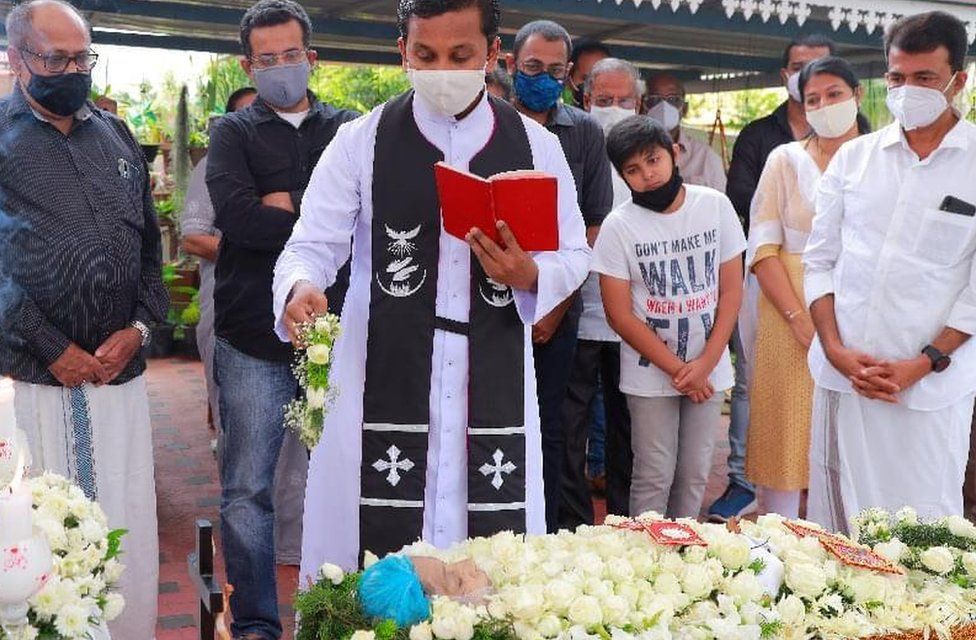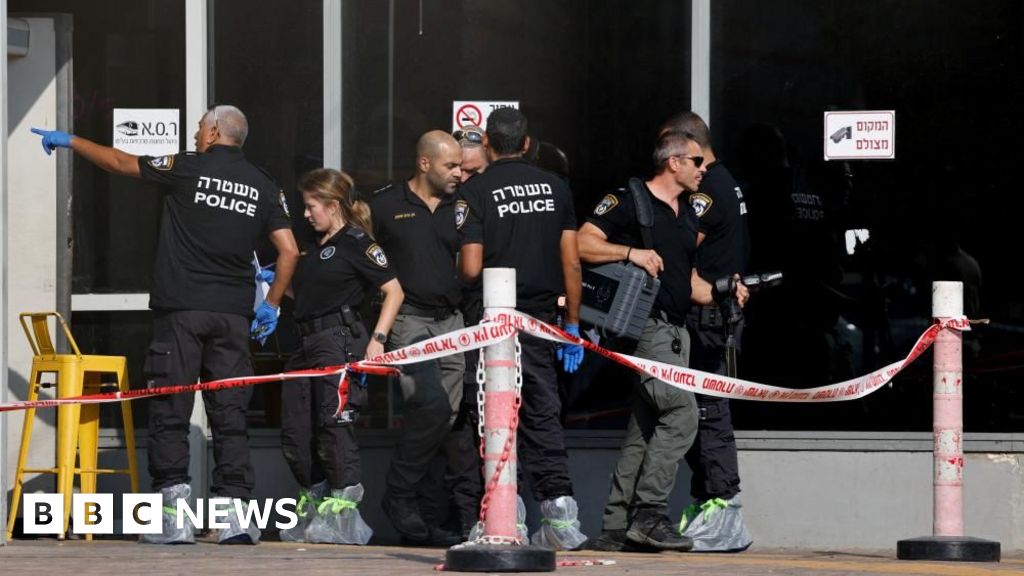ARTICLE AD BOX
 Image source, Executive Events
Image source, Executive Events
Experts say the tradition is unique to the Christian community in Kerala
By Meryl Sebastian
BBC News, Kochi
"We start clicking photos from the moment the body is taken from the mortuary to the person's home."
Bittu, who goes by only one name, has been running his photo studio in the southern Indian state of Kerala for nearly 20 years.
His work is dedicated to capturing significant events in a person's life - from baptisms, engagements, and weddings to funerals. He's photographed at least three Christian funerals in the state's Kottayam district just this week.
"The real work starts three hours before the funeral as we take photos of the close family, relatives and family friends with the body."
His photos show mourners sombrely standing beside the coffin. Families, friends and relatives line up to stand in groups next to the deceased in the coffin and take a picture. Some cry, others look solemn as they assume a reverent stance.
Mr Bittu curates these moments carefully into a photo album that becomes a keepsake for the grieving family.
Experts say this tradition is unique to the Christians who make up 18% of Kerala's 33 million people.
"For a Christian, death is not entirely sad," says Father Mathew Kilukkan, a priest of the Syro-Malabar Catholic Church in Kerala. "Theologically, death is considered the beginning of one's journey to heaven and an entry into everlasting life."
Last year, a photo showing a Christian family in Pathanamthitta district smiling next to the casket of their dead matriarch went viral online as people debated the propriety of their demeanour.
The backlash prompted the state's education minister V Sivankutty to come to the family's defence. "What is happier than giving a farewell with a smile to those who lived happily?" he wrote on Facebook.
Capturing funerals on video or in photos is like any other event, says Raju Kannampuzha, managing director of an event management company in Ernakulam district.
But the state's Hindu and Muslim communities rarely opt for this service, he says.
"The Christian ceremony is an elaborate farewell - from prayers at the house to the procession towards the church and the rituals at chapel in the graveyard," he explains. "It's also open to all, which is not always the case with the Hindu or Muslim ceremonies."
It's hard to pinpoint when the custom of photographing Christian funerals began, says Father Mathew Kilukkan, a priest of the Syro-Malabar Catholic Church.
"Photography was expensive when it began and not accessible to everyone like it is today. But it definitely became a part of these rituals when it became a part of the ordinary person's life," he says.
Image source, Executive Events
Image caption,Christians have been photographing funerals for a long time
For Mr Bittu, covering a funeral can take from five to 12 hours. "Sometimes, we start the night before the funeral. When prominent members of the community die, say a bishop or a film star, we also document the arrival of VIPs to pay tribute."
When he first began, Mr Bittu says his photos were more staid, limited to close-up shots of the deceased, photos of the relatives sitting next to the coffin, a few photos of the family kissing the deceased goodbye and of the rituals performed by the priest.
But like wedding photography, the style of funeral photography has also evolved, he says.
"The trend of candid photography in the wedding industry has also seeped in here - so the idea now is to capture the emotion as well," he explains. "A relative may break down in tears and be consoled or held close by another person - we now try to capture these moments."
Once the preserve of albums, these photos now get shared on WhatsApp groups and on social media as a record and to share the moments with those unable to attend the ceremony.
Image source, Executive Events
Image caption,Like wedding photography, the style of funeral photography has also evolved
While many keep the photos for memory, Mr Bittu says he also has clients for whom it is an exercise in ostentatious display of how much they splurged on the choir or on hiring an expensive event manager.
Elaborate funerals are on the rise in the state, says Mr Kannampuzha whose company started a special "It's your day" funeral package seven years ago.
This includes a mobile mortuary, coffin, flower arrangements, live streaming service, food catering, an ambulance, setting up of canopy outside the house, and, of course, photography.
Image source, Executive Events
Image caption,The photos now get shared on WhatsApp groups and on social media
People who get these photos taken say they don't often look back on them. But the moment remains important.
The Pathanamthitta family said they were unaffected by the public censure of their viral photo. They decided to take one last photo with their matriarch "with smiling faces" because they were "proud" of her.
"It was our collective decision to have the last photograph with her in a happy mood, so as to ensure a good farewell to her," a family member later said.
BBC News India is now on YouTube. Click here to subscribe and watch our documentaries, explainers and features.

 1 year ago
23
1 year ago
23








 English (US)
English (US)